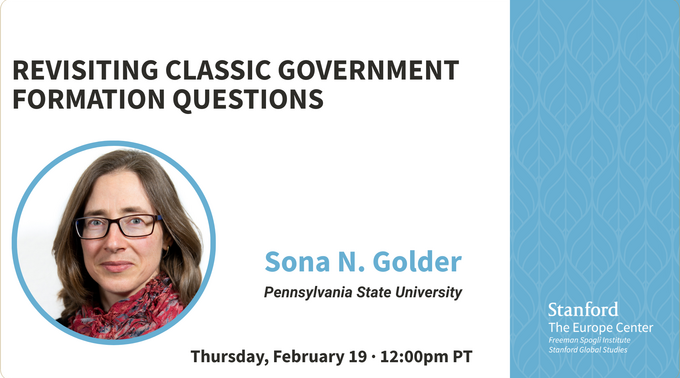Global Trends and Geopolitics in 2026: A Look Ahead
Registration is currently closed.
Stanford faculty, students, and staff are welcome to join the Freeman Spogli Institute for International Studies (FSI) for “Global Trends and Geopolitics in 2026: A Look Ahead,” a forward-looking conversation on the forces shaping the world.
FSI Director Colin Kahl will moderate a panel of leading institute scholars as they examine key regions and themes. The discussion will feature Larry Diamond on the future of global democracy; Anna Grzymala-Busse on European politics; Harold Trinkunas on Latin America; and Or Rabinowitz on Middle East politics and U.S.-Israel relations. Kahl will also offer insights into U.S.-China competition for AI dominance.
Don't miss this timely conversation on emerging risks, opportunities, and policy implications as we navigate an increasingly complex global landscape in 2026.
Drinks and hors d'oeuvres will be served following the panel discussion.
Location available following valid registration
Anna Grzymała-Busse
Encina Hall
616 Jane Stanford Way
Stanford, CA 94305
Anna Grzymała-Busse is a professor in the Department of Political Science, the Michelle and Kevin Douglas Professor of International Studies, senior fellow at the Freeman Spogli Institute for International Studies and the director of The Europe Center. Her research interests include political parties, state development and transformation, informal political institutions, religion and politics, and post-communist politics.
In her first book, Redeeming the Communist Past, she examined the paradox of the communist successor parties in East Central Europe: incompetent as authoritarian rulers of the communist party-state, several then succeeded as democratic competitors after the collapse of these communist regimes in 1989.
Rebuilding Leviathan, her second book project, investigated the role of political parties and party competition in the reconstruction of the post-communist state. Unless checked by a robust competition, democratic governing parties simultaneously rebuilt the state and ensured their own survival by building in enormous discretion into new state institutions.
Anna's third book, Nations Under God, examines why some churches have been able to wield enormous policy influence. Others have failed to do so, even in very religious countries. Where religious and national identities have historically fused, churches gained great moral authority, and subsequently covert and direct access to state institutions. It was this institutional access, rather than either partisan coalitions or electoral mobilization, that allowed some churches to become so powerful.
Anna's most recent book, Sacred Foundations: The Religious and Medieval Roots of the European State argues that the medieval church was a fundamental force in European state formation.
Other areas of interest include informal institutions, the impact of European Union membership on politics in newer member countries, and the role of temporality and causal mechanisms in social science explanations.


![Josep Borrell [right] in discussion with Michael McFaul [left].](https://fsi9-prod.s3.us-west-1.amazonaws.com/s3fs-public/styles/707x483/public/2024-05/josep_borrell_eu_democracy_5_hero.png?itok=B_fbY_pc)



![Josep Borrell [right] in discussion with Michael McFaul [left].](https://fsi9-prod.s3.us-west-1.amazonaws.com/s3fs-public/styles/1300x1300/public/2024-05/josep_borrell_eu_democracy_5_hero.png?itok=pM6CT1oe)




![Michael McFaul [left], the director of the Freeman Spogli Institute for International Studies, speaks with Josep Borrell [right], High Representative of the European Union for Foreign Affairs and Security Policy, during an event at Stanford University on May 13, 2024.](https://fsi9-prod.s3.us-west-1.amazonaws.com/s3fs-public/styles/895x498/public/2024-05/josep_borrell_eu_democracy_hero.png?h=c4d9845d&itok=TJ5M_9hJ)



